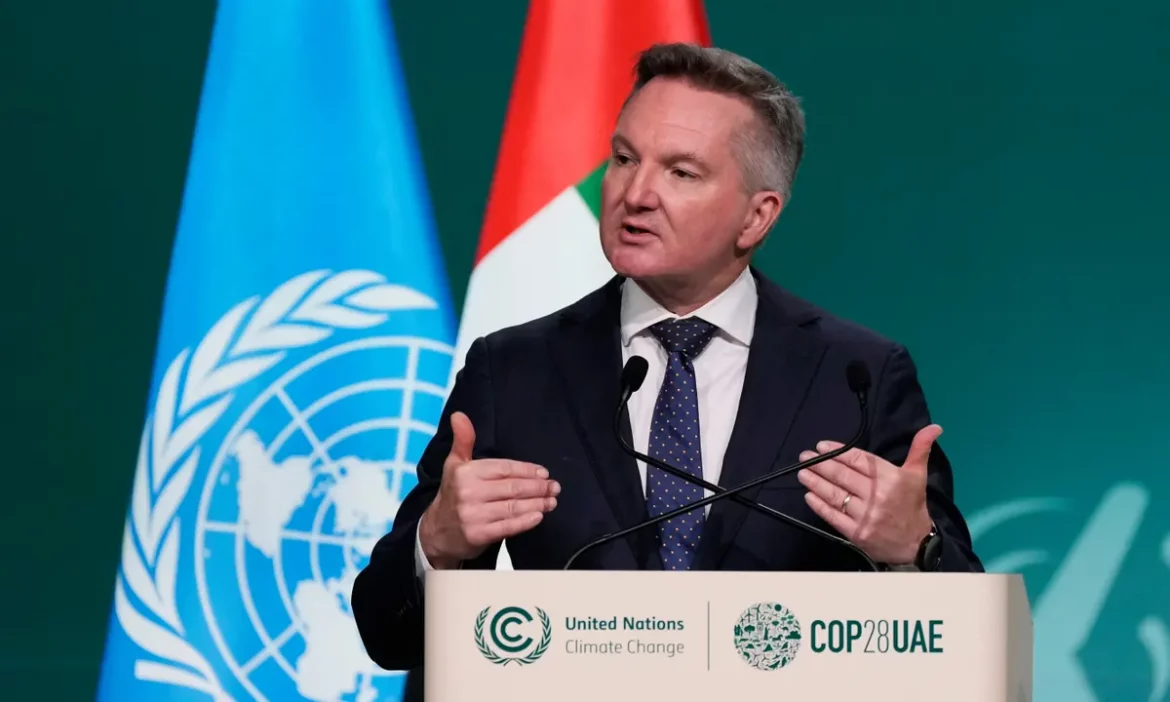The Australian climate change minister, Chris Bowen, has asked over 200 countries at the Cop28 summit to end the use of fossil fuels in energy systems.
This came as the president of the Cop, Sultan Al Jaber, convened a majlis – a meeting in the traditional form of an elders’ conference in the United Arab Emirates – between all countries late on Sunday in an attempt to reach consensus on points of deadlock, including whether fossil fuels should be phased out or phased down.
The two-week conference has just a day and a half of official negotiating time left before it is scheduled to end on Tuesday morning.
In his address, Bowen told the majlis that a global stocktake for the summit had found the world was not on track to stay within 1.5C of heating, and the response “must be anchored in keeping 1.5 alive”. He said that global emissions must peak by 2025 and be cut by 43% by 2030 and 60% by 2035 compared with 2019 levels, and that renewable energy should be tripled by 2030.
“I think that should be reflected in the outcome,” he said.“We also must face this fact head on: if we are to keep 1.5C alive, fossil fuels have no ongoing role to play in our energy systems – and I speak as the climate and energy minister of one of the world’s largest fossil fuel exporters. And we embrace that fact and acknowledge it because we also live in the Pacific, and we are not going to see our brothers and sisters inundated and their countries swallowed by the seas.”
Read also: Health body says climate crisis could cause 10,000 extra UK deaths a year by 2050
Bowen said that there were “many ways” the language adopted at the talks could reflect that fossil fuels did not have a future, and told the president: “We’ll be flexible with you to find the pathway to give you the chance you need to write that into history.”
He also signalled that could include attaching the word “unabated” to any decision about phasing out fossil fuels.
Unabated is a controversial and undefined term at climate talks that is usually taken to mean fossil fuels can continue if their emissions are being reduced through the use of carbon capture and storage, a technology that has not proven commercially viable.
Bowen said that talking about abatement of fossil fuels in a deal should not be seen as a justification for countries to just keep using them. “We don’t need to phase out fossil fuel emissions, we need to end the use of fossil fuels in our energy systems, with abatement as a backstop and goalkeeper, not as an excuse for delay or inaction,” he said.
Story was adapted from the Guardian.
